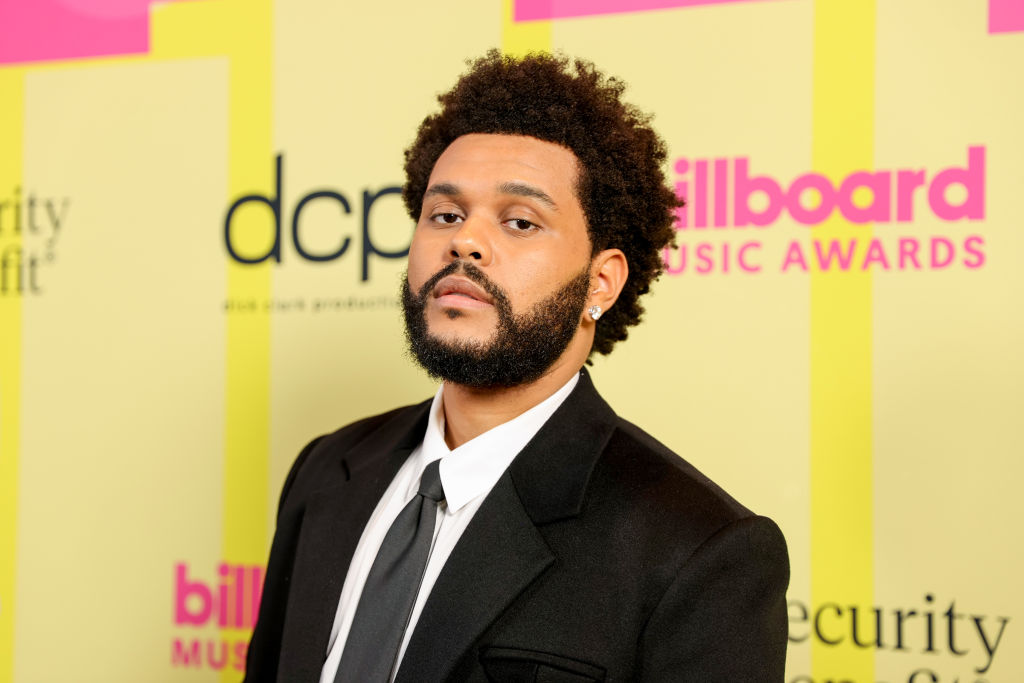A Look Into the Weeknd’s Numerous Copyright Battles
PPLAdmin

LOS ANGELES, CALIFORNIA – MAY 23: The Weeknd poses backstage for the 2021 Billboard Music Awards, broadcast on May 23, 2021, at Microsoft Theater in Los Angeles, California. (Photo by Rich Fury/Getty Images for dcp)
Continuously at the center of multiple copyright infringement lawsuits, Canadian singer, songwriter, and record producer, Abel Tesfaye, professionally known as “the Weeknd,” has been the subject of a slew of copyright infringement lawsuits since 2015. Central to these lawsuits are allegations that the Weeknd has illegally copied substantial elements from various music created by others and incorporated those elements into his hit songs.
2015:
In 2015, the Weeknd was sued by Cutting Edge Music in the United States District Court for the Central District of California for allegedly stealing elements from a song in a 2013 film entitled “The Machine.” According to the complaint, the similarities between the plaintiff’s song and the Weeknd’s song entitled, “The Hills,” is the “synthesizer bass-lines performed with almost identical idiosyncratic sounds at the same register and using the same pitch sequence, melodic phase structure, and rhythmic durations.” This lawsuit was eventually settled for an undisclosed amount and dismissed in 2016.
2018:
In 2018, the Weeknd and musical collaborator, Daft Punk, were sued in the United States District Court for the Central District of California for their 2016 hit song, “Starboy” by singer and songwriter Yasmin Mohamed. Mohamed alleged that her 2009 song “Hooyo” shared many of the same elements as “Starboy,” including the same hook, key, as well as a similar tempo, and other significant elements. According to Mohamed, “Starboy,” which reached No. 1 on the Billboard Hot 100, bears an “uncanny resemblance” to her song.
2019:
In 2019, the Weeknd was again sued in the United States District Court for the Central District of California for copyright infringement, this time he was accused by a trio of British songwriters of copying their song in the Weeknd’s track “A Lonely Night,” which appeared on his Grammy Award-winning 2016 album “Starboy.” On July 22, 2020, the Court dismissed the lawsuit on the grounds that there was insufficient evidence that the song copied substantial elements from the Plaintiff’s song and on October 8, 2021, the United States Court of Appeals for the Ninth Circuit affirmed this dismissal.
2020:
In 2020, the Weeknd was sued by the now-defunct indie band, Yeasayer, in the United States District Court for the Southern District of New York for copyright infringement. The band claimed that The Weeknd’s song “Pray for Me” included an unauthorized sample of their song “Sunrise.” In court documents filed by The Weeknd, he stated that “Pray For Me” was created “independently from and without knowledge of the allegedly infringed work.” Later that year, Yeasayer voluntarily dismissed their lawsuit, presumably due to a confidential settlement.
2021:
In the latest case against the Weeknd, the pop artist was sued for copyright infringement on September 17, 2021, in connection with his hit song, “Call Out My Name.” Two music producers, Suniel Fox and Henry Strange filed a copyright infringement lawsuit in United States District Court for the Central District of California, claiming that the singer copied numerous important elements of their 2015 song “Vibeking,” which they describe as an “atmospheric and melancholic” instrumental track. This case is still pending.
2015: Cutting Edge was represented by Tom Brackey, managing partner of the Los Angeles firm of Freund & Brackey. The Weeknd and the other defendants were represented by Paul H. Duvall of King & Ballow. The case is Cutting Edge Music v. Tesfaye et al., case number 15-cv-09547-PA-AFM, in the U.S. District Court for the Central District of California.
2018: Yasmin Mohamed was represented by Steven T. Lowe of Lowe & Associates and Scott Burroughs of Doniger Burroughs Law. The Weeknd and the other defendants were represented by Peter Anderson of Davis Wright Tremaine LLP. The case is Yasmin Mohamed v. Abel Tesfaye, et al., case number 2:19-cv-134 JSL (SSx).
2019: Clover and McCulloch were represented by Thomas B. Orlando and James B. Glennon of Foran Glennon Palandech Ponzi & Rudloff PC. The Weeknd and the other defendants were represented by Peter J. Anderson and Arleen Fernandez of Davis Wright Tremaine LLP. The case is Brian Clover et al. v. Abel M. Tesfaye et al., case number 20-55861, in the U.S. Court of Appeals for the Ninth Circuit.
2020: Yeasayer was represented by Scott Alan Burroughs and Laura M. Zaharia of Doniger Burroughs. The Weeknd and other defendants were represented by Peter Anderson, Nicolette Vairo, and Adam I. Rich of Davis Wright Tremaine LLP. The cases are Yeasayer LLC et al. v. Tesfaye et al., case number 1:20-cv-01608, in the U.S. District Court for the Southern District of New York, and William Smith et al. v. The Weeknd et al., case number 2:19-cv-02507, in the U.S. District Court for the Central District of California.
2021: The plaintiffs are represented by Stephen M. Doniger of Doniger Burroughs and by Christopher S. Ghazarian of Chris Ghazarian Law. Counsel information for the defendants was not yet available. The case is Parekh et al. v. Tesfaye et al., case number 2:21-cv-07488, in the U.S. District Court for the Central District of California.
* Lowe & Associates (“The Firm”) is an entertainment and business law firm located in Beverly Hills, California. The Firm has extensive experience handling cases involving copyright law, having provided top-quality legal services to its clients since 1991. The Firm is recognized for its many achievements, including successfully litigating many high-profile cases.
Find us at our website at www.LoweLaw.com
